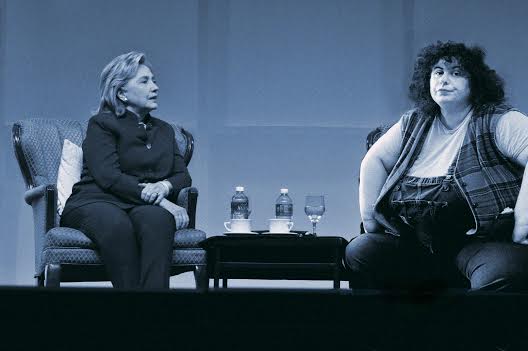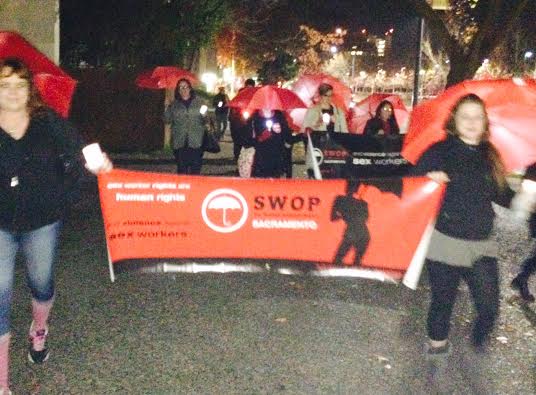I found this line weeks ago. I can’t remember when I wrote it or what brought it on. It was isolated on a sheet with other notes, none as dramatic. ‘I wanted to make strange men touch me.’ When did I want this? Or rather, when will I stop wanting this? Nightmare Brunette was originally… Continue reading N.B. (2015)
Clinton/Dworkin 2016: Andrea Dworkin And Sex Workers In An Era of Hillary Clinton Feminism
Why is pornography legal in the United States, if it is illegal to have sex for money? Why is selling sex so that only your client witnesses it illegal, but when you ensure that the entire world could potentially view you on film, this act legitimizes the prostitution? If pornography never affects real life, then… Continue reading Clinton/Dworkin 2016: Andrea Dworkin And Sex Workers In An Era of Hillary Clinton Feminism
Starting To Show Up: An Interview With SWOP National’s President, Savannah Sly
SWOP (Sex Worker Outreach Project) is the most recognized name in sex workers’ rights advocacy in the U.S. Currently, they have over 25 chapters around the country, and a board of directors—SWOP National. The only requirements to be a chapter are that March 3rd (International Sex Worker Rights Day) and December 17th (International Day To… Continue reading Starting To Show Up: An Interview With SWOP National’s President, Savannah Sly
Stacks & Cats
Stripper, Florida. Paying my tax to the Supreme Leader, who typically peels off the large notes and leave the singles for litter. Mommy’s haul from a weekend of dancing, supplemented by drug money from a home mycology project. A total of $1121 dollars, which I was benevolently given permission to use toward new tires and… Continue reading Stacks & Cats
Activist Spotlight: Bonnie On Violence And Endurance
Content warning: This interview contains graphic descriptions of police violence and rape, imprisonment, and domestic abuse. Bonnie is a veteran sex workers’ rights activist who has done outreach work in the D.C. area since 2001. She was a HIPS (Helping Individual Prostitutes Survive) client who lived on the streets in Maryland. Later, she was inspired… Continue reading Activist Spotlight: Bonnie On Violence And Endurance




